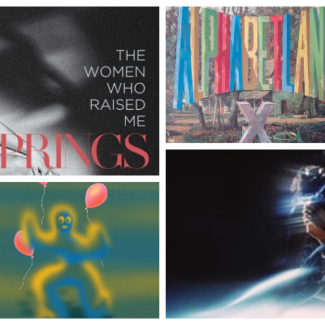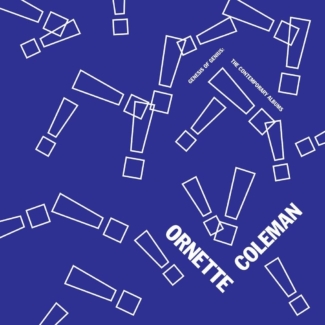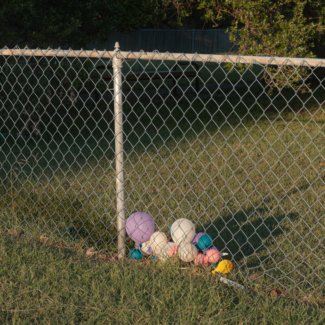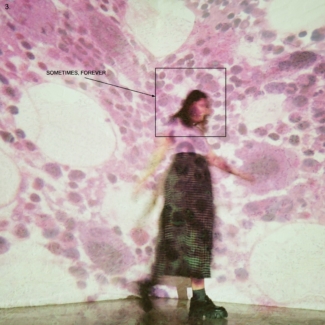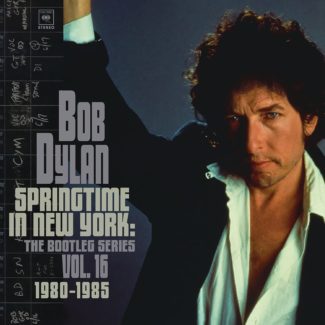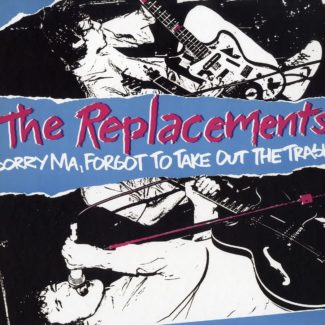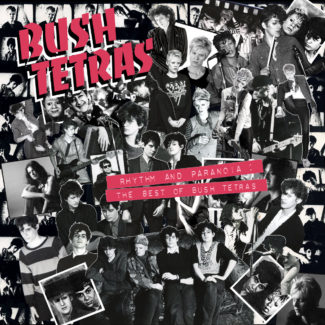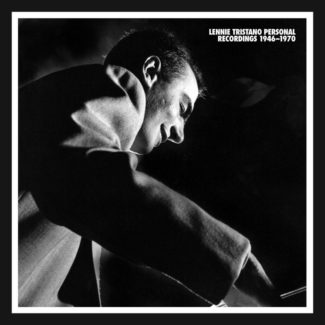Little Simz
Drop 6 EP
(Age 101)

She hasn’t scored a breakthrough hit, but 2019’s Grey Area garnered a Mercury prize nomination and pointed the needle skyward for Little Simz (Simbi Ajikawo). Yet this UK rapper and actor now finds herself on pause. Returning to her Drop series of mixtapes, Drop 6 is the sound of an artist in isolation. Home alone, Simz powered through her anxieties (and her neighbor’s complaints about the bass) to craft a spare, industrial sound as akin to Joy Division as her hip-hop contemporaries. There’s little adorning her freestyling verse, just funky, propelled bass lines and hammer on anvil percussion. The pandemic hangs over the material. “Crabs in a barrel, we all in this” she says on “You Should Call Mum”. “Where’s My Lighter” is a lament for a career interrupted. But Simz isn’t navel-gazing. With fierce braggadocio, she’s determined to rise above her situation. She states the theme on the opener, “Might Bang, Might Not.” “I am the force that we speak of / What’s a wave to a tsunami?” “One Life, Might Live” is the EP’s standout, an internal battle against self-doubt, set to an unstoppable groove. “Say you’re born to do this, but you ain’t got what it takes / Damn sure innit, every ting vivid / I got one life and might just live it.”
– Jeff McCord
4
Purchase Drop 6 EP HERE
Shabaka & The Ancestors
We Are Sent Here By History
(Impulse!)
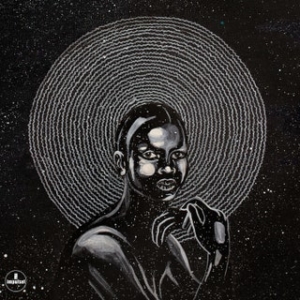
UK tenor saxophonist Shabaka Hutchings might be the best known of the young players in London’s thriving West End jazz scene. He currently fronts three bands, the cheesy rock trio The Comet Is Coming, the Afro-Caribbean Sons of Kemet, and a project more deeply felt, a group of South African musicians called the Ancestors. Returning to Johannesburg to reconvene the group he first recorded with in 2016, Hutchings and company reach for a spiritual ferocity akin to Albert Ayler or late-period Coltrane. Yet Hutchings learned his instrument playing along to Nas records. As a result, he learns into the rhythm and occasionally runs low on improvisational steam. Compositions are based on the lyrics of the griot tradition (oral storytelling), and the best moments here feel as if something of import is being passed on. The meditative “Go My Heart, Go To Heaven” summons its power from Hutchings and band laying back. The opposite happens on the slow-building and ultimately hair-raising “The Coming of the Strange Ones.” For the most part, though, Hutchings, conversing with alto player Mthunzi Mvubu, finds a soulful restraint. The overall vibe is absorbing. Released in February, all tour plans have been put off. Until then, the power of History is something to behold.
– Jeff McCord
4.25
Purchase We Are Sent Here By History HERE
Kandace Springs
The Women Who Raised Me
(Blue Note)
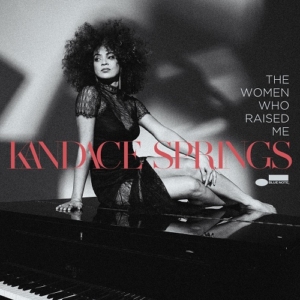
Of the surprising number of jazz albums released every month, many of them are from female vocalists. Among these, Nashville native Kandace Springs’ The Women Who Raised Me stands out. Her third album is a set of covers that pays tribute to the singers who have “raised” Springs artistically and have been influential to the 31-year-old’s career. Part of Springs’ appeal is her uncanny ability to meld classic jazz singing with more modern soul and R&B stylings. It’s not surprising to hear Springs cover signature tunes of Billie Holiday (“Solitude”), Nina Simone (“I Put a Spell On You”), Roberta Flack (“Killing Me Softly With His Song”) and even Bonnie Raitt (“I Can’t Make You Love Me”). Springs gives this familiar material a unique stamp. Astrud Gilberto sang “Gentle Rain” as a lilting samba, but Springs imbues a subtle blues feeling, adding gospel chords on piano. She closes the album with a minimalist “Strange Fruit,” just her on electric piano for an ethereal take of Holiday’s far bleaker original. Better still is “Angel Eyes,” maybe the most recorded of any song here. Joining her for this soulful duet is Norah Jones, who also provides her delicate, understated piano accompaniment. Springs, however, works the eighty-eight keys on the rest of the album, joined by top-shelf players including guitarist Steve Cardenas, bassist Scott Coley, and drummer Clarence Penn. All told, this is an album certain to raise your spirits.
– Jay Trachtenberg
4
Purchase The Women Who Raised Me HERE
Moses Sumney
græ
(Jagjaguwar)

If there’s a successor to Brian Wilson’s “wasn’t made for these times” brand, it’s probably Moses Sumney, the enigmatic LA singer. The ambitious twenty-song double album græ, released in two parts, the first in February, the remainder just this month, feels like art of another world, especially given the state of our current one. Sumney doesn’t write pop songs in the conventional sense. The word ‘love’ doesn’t really come up, there’s not a single hook to pull you in. Everything is fluid-structure, relationships, friendships, gender. Appreciating Sumney takes a degree of initial patience. His songs aren’t emotional, they are emotions; nothing here is casually felt or observed. Sumney’s soulful falsetto resembles Prince, who was so adept at using his voice to build frenzy. But with Sumney, the frenzy never comes. Instead the backings are lush and varied, as are the collaborators – Oneohtrix, Thundercat, Shabaka Hutchings, James Blake, even writer Michael Chabon. All help Sumney get lost in his music again and again. On the video of the sparse “Polly,” a faded love tale (“You love dancin’ with me/ Or you just love dancin’”), instead of lip-synching, as the lyrics implore “See Me,” Sumney stares into the camera and weeps. If this sounds overly serious, yeah, it can be. But there is humor, too. Repeated listens let the subtleties unspool. It’s almost impossible to believe such heart on your sleeve emotions can exist in today’s world. Sumney conjures up another time and space, one that may have only previously existed in his mind. If you’re looking for a way to escape, look no further.
– Jeff McCord
3.75
Purchase græ HERE
Yves Tumor
Heaven To A Tortured Mind
(Warp)
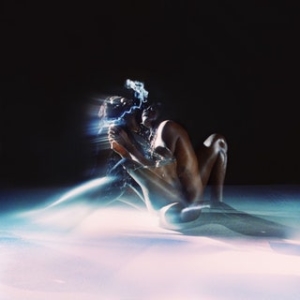
With Heaven To A Tortured Mind, Yves Tumor revels in a rock star mythos built to hypnotize and seduce with its hazy hedonism. Tumor, who uses they/them pronouns, first made waves with the 2018 release of Safe In The Hands of Love, an enthralling mix of experimental noise and electronic ambiance. Heaven favors a more mainstream sound but there’s still the same genre fluidity that defines their earlier works. The album is glam rock made for 2020, complete with touches of fuzzy psychedelia, noise and soul. Tumor kicks things off with “Gospel For A New Century,” an indelible blend of swaggering horns and percussion-driven by a sultry charisma that quickly sets the record’s tone. Touch feels nearly perceptible throughout as Tumor sings of lost love and secret ecstasy. The warm textures and full-band feeling of the production give the music all the physicality of a smoke-filled, hidden rock club of eras past, but no instrument is as tactile as Tumor’s voice. Throaty howls and raspy intonations make up the record’s fabric. On “Super Stars,” a punctuated falsetto takes the spotlight; on “Dream Palette,” Tumor’s voice haunts as they question “Tell me, is this fundamental love?” amidst driving guitars and firework-like whistles. All this comes to a head on “Kerosone!,” a dizzying five-minute duet with singer Diana Gordon that takes its time letting the seduction simmer. The pot inevitably boils over with an explosive guitar solo as Gordon and Tumor’s hushed yearnings give way to intoxicated screams. The effect is pure rapture.
– Annie Lyons
4.5
Purchase Heaven To A Tortured Mind HERE
White Denim
World As A Waiting Room
(Radio Milk)
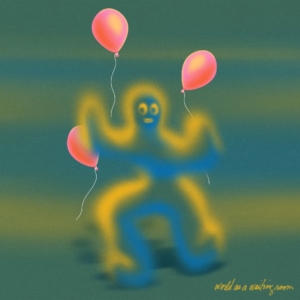
Everyone’s plans are changing. Hearing their spring tour was canceled, the Austin quartet came up with an ambitious alternative. Instead of sitting around fretting, White Denim launched a plan to write and record an entire album in thirty days, releasing it on April 17th, which would have been their final show of the tour. World As A Waiting Room is the result, a shambolic, rocket-fueled nine-song collection that never really comes up for air. The band got basic tracks done in their own Radio Milk Studios, but Austin’s subsequent stay-at-home order made things even more complicated. While James Petrali worked on vocals at Milk, he roped in everyone else remotely, including all stuck-at-home past members of the White Denim axis he and bassist Steve Terebecki co-founded. While this has never been a band to labor for months on their compositions, they’ve always been deviously tricky inventions. On Waiting Room, they’re even more given a longer leash. “Work” is almost jammy, “Go Numb” has a new-wavish pop vibe, as does the psyched-out “Queen of the Quarantine”, which seems to channel Gary Numan. Elsewhere, there are the usual rapid-fire changes, and a generous helping of brain-melting guitar riffs. With so many collaborators, arrangements are crowded like a low-fi Phil Spector casserole. In short, despite the tight schedule, there’s nothing here that different from any other White Denim release. Even in the worst of circumstances, this is a band that takes unbridled joy in rocking out.
– Jeff McCord
3.75
Purchase World As A Waiting Room HERE
Why Bonnie
Voice Box
(Fat Possum)

Austin quartet Why Bonnie expands their bedroom pop sensibilities with Voice Box, exploring the disconnect between our inner and outer selves. Why Bonnie started as the project of vocalist Blair Howerton, who found a collaborator with lifelong best friend and classically trained pianist Kendell Powell. Once guitarist Sam Houdek and bassist Chance Williams were added to the line-up, the group’s first two EPs quickly established their prowess for guitar pop with synth flourishes. Voice Box showcases a new confidence, despite the EP’s themes of isolation and uncertainty. Throughout, guitars bloom into ardent intensity to form intricate layers of sound. Opener “Bury Me” is an earworm with a rollicking guitar line, accentuated by glossy synths. Howerton’s Mazzy Star-esque vocals propel the song forward, but she finds room to wander, letting her words drift as she sings “I used to feel so at home in this space.” There’s a subtle tension driving each track forward as Howerton’s search for clarity falls just tantalizingly out of reach. In “Athlete,” cranked out guitars and heavy percussion make the band’s comparisons to The Cranberries all the more readily apparent. During the song’s moments of relative calm, jittering buzzes give the melancholy musings more weight. The title track is an exercise in shimmering, warm distortion that defines the EP. Clear vocals give way to layers of processing that surround the song’s mantra: “I don’t wanna yell / Take my voice box out / I can’t control myself.” By the track’s conclusion, the vocals swirl together into indistinction as the hook bleeds into a sprawling minute of fuzzed-out guitars.
– Annie Lyons
3.75
Purchase Voice Box HERE
X
Alphabetland
(Fat Possum)
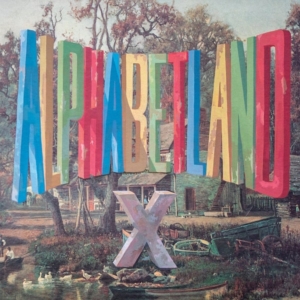
Very few of the surprises of the last few months have fallen on the happy side, but here’s an exception. Returning on record for the first time since 1985, the original X lineup delivers a set of songs as good as anything since their initial one-two punch of Los Angeles and Wild Gift. X was one of the few bands from the West Coast punk scene that translated their visceral power to record. This was due not only to their arch songwriting but their musicianship – the hard-fastened John Doe-Exene interval singing, Billy Zoom’s sped-up rockabilly licks, Bonebrake’s never-faltering beat. That they remain locked tight in 2020 is not exactly a surprise. The original lineup has been back playing shows for several years now. But a recent appearance wandered stylistically, as if shaking off their cobwebs. Not so on Alphabetland. Blistering right up until Exene’s spoken-word coda, this is a band reveling in what they do best. Without frills or gimmicks, as fresh and tightly curated as a debut album, nothing here lags. And the highlights (“Free’, “Strange Life”, the timely “Angel On The Road’) are frequent. They even up the ante couple of Los Angeles-era demos (“Delta 88 Nightmare” and a reformed “Cyrano Deberger’s Back”). The intent in rushing Alphabetland’s release may have been to get it out for the lockdown, but we’ll still be playing this one years from now.
– Jeff McCord
4.5
Purchase Alphabetland HERE
IN PRINT
13th Floor Elevators: A Visual History
by Paul Drummond
(Anthology Editions)
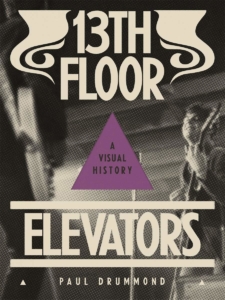 As much a scrapbook as a photo album, more of an oral history than a narrative, British writer Paul Drummond has assembled an impressive three hundred pages of Elevator arcana. Stevie Ray Vaughan might have sold more records, but it was Roky Erickson and Tommy Hall’s group that remains Austin’s most influential rock act. Formed in 1965, these psychedelic pioneers set the course for the hundreds of bands that formed in their wake. Hall’s LSD evangelism, electric jug and lyrics were like Chakras for the mind –“I Have Always Been Here Before.” Up front, the guitar and paint-peeling scream of Roky Erickson led the way. The photos of a youthful Roky included here burn with charisma. There’s page after page of family photos, fan polaroids, posters, shots of old Austin haunts like the New Orleans Club, and clips from the Statesman column ‘Jim Langdon’s Nightbeat.’ Langdon, in his mustache and checked sport coat, cigarette dangling, covers the Elevators rise and also reviews Lightnin’ Hopkins and Janis Joplin shows, providing a time capsule of this extraordinary period. The stories, told chronologically by band members, friends, and family are often long and rambling, recounting the four brief years of this legendary act – the over the top excesses, light shows, the acid, the enlightened hippie philosophy, their demise and torture at the hands of the less-than-enlightened police. It all came to a tragic end, but for a while, nothing burned brighter than this group that lived in a time of its own.
As much a scrapbook as a photo album, more of an oral history than a narrative, British writer Paul Drummond has assembled an impressive three hundred pages of Elevator arcana. Stevie Ray Vaughan might have sold more records, but it was Roky Erickson and Tommy Hall’s group that remains Austin’s most influential rock act. Formed in 1965, these psychedelic pioneers set the course for the hundreds of bands that formed in their wake. Hall’s LSD evangelism, electric jug and lyrics were like Chakras for the mind –“I Have Always Been Here Before.” Up front, the guitar and paint-peeling scream of Roky Erickson led the way. The photos of a youthful Roky included here burn with charisma. There’s page after page of family photos, fan polaroids, posters, shots of old Austin haunts like the New Orleans Club, and clips from the Statesman column ‘Jim Langdon’s Nightbeat.’ Langdon, in his mustache and checked sport coat, cigarette dangling, covers the Elevators rise and also reviews Lightnin’ Hopkins and Janis Joplin shows, providing a time capsule of this extraordinary period. The stories, told chronologically by band members, friends, and family are often long and rambling, recounting the four brief years of this legendary act – the over the top excesses, light shows, the acid, the enlightened hippie philosophy, their demise and torture at the hands of the less-than-enlightened police. It all came to a tragic end, but for a while, nothing burned brighter than this group that lived in a time of its own.
– Jeff McCord
4
Purchase 13th Floor Elevators: A Visual History HERE
